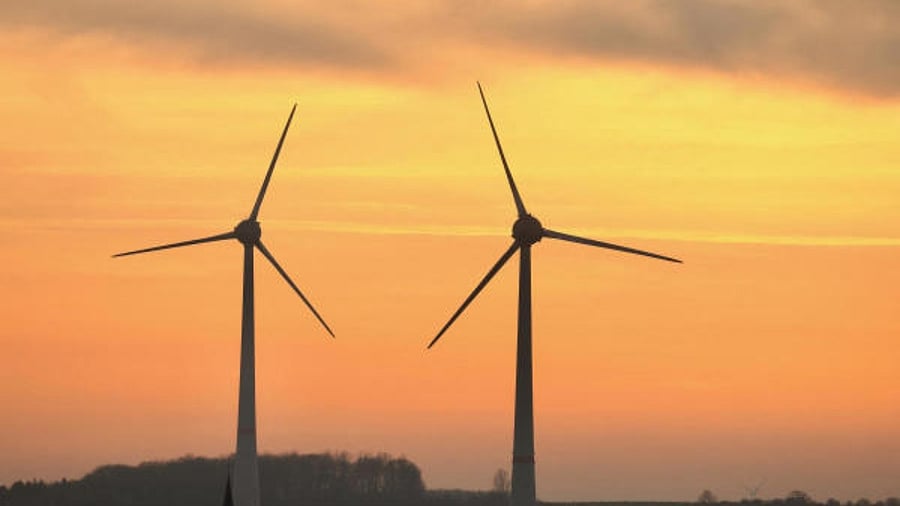
India, targeting wind capacity addition of 100 GW by 2030, has an opportunity to emerge as a major player in supply chain if facilitative policy measures are put in place, the Global Wind Energy Council (GWEC) said in its latest report on Tuesday.
Being the second largest Asia-Pacific hub for turbine assembly and key components production, India was in a unique position to leverage growing export and international service opportunities as the industry is set to install about 136 GW per year.
“With an existing share of 11 per cent in blade manufacturing, 7 per cent in wind turbine generator and 12 per cent in gearbox manufacturing, India stands at a unique position to further strengthen its position in the global wind supply chain. However, any restrictive trade policies in India or in other regions that mandate complete localization may lead to price surges and supply chain disruptions.
To be able to meet national, regional and global climate action goals, building on regional competitive advantages shall foster a healthy growth in the wind energy sector as compared to restrictive policies," said Martand Shardul, policy director of GWEC India.
India has set an annual target of 8GW onshore wind tender for years 2023-2030 combined with the desired addition of 37 GW of offshore wind by 2030. These need to be backed by the supply chain investments.
“A growing likelihood of global supply chain crunch amid expanding ambitions in mature as well as in emerging markets signals need for urgent investments in supply chain to avoid slowdown of clean energy transition interventions. India must leverage this time to boost its manufacturing capacities by catalysing domestic demand as well as incentivising exports,” Shardul said.
GWEC said decisions made by policy makers in major supply chain countries will have a decisive impact on whether the world will be able to carry out the energy transition within the necessary time frame.
